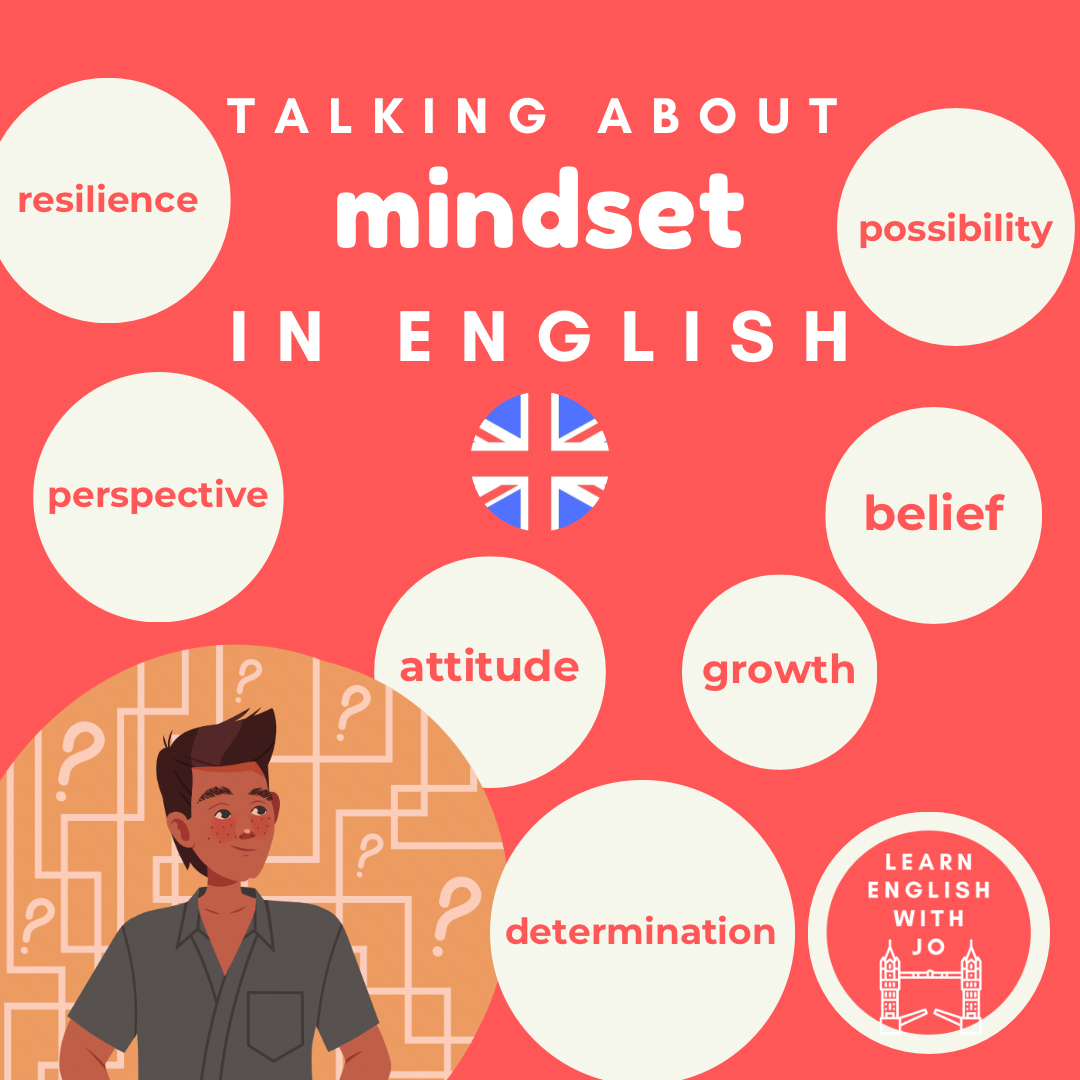Talking about mindset when learning English as a second language
A quick foreword: growth mindset is a privilege
Having your lack of progress in learning English being reduced to ‘a negative or fixed mindset’ can be unhelpful at best.
Sometimes we have to adopt a survival mindset in our lives. Active learning requires a sense of safety, time and resources. If you’re in survival mode right now, then focus on the things you need to get you through the next 24 hours. Your English can and will wait.
If you’re currently in a position where you can focus on building a positive, growth mindset when it comes to learning English as a second + language, then hopefully this blog will help you to think about how you approach your learning journey in 2024.
Embrace a growth mindset
One of the fundamental principles of successful language learning is having a growth mindset. Instead of viewing language proficiency as a fixed trait, people with a growth mindset believe that their abilities can be developed through determination, dedication, commitment and curiosity.
Mistakes are part of the process
When learning English, it’s vital to remember that making mistakes is a natural and important part of the process. A positive mindset allows you to see making mistakes as learning opportunities.
Would you like to improve your confidence in speaking English in 2024? Book a trial English conversation class with me via my profile on italki or drop me a message.
Sign up to italki and you will receive $10 italki credits in your student wallet within 48 hours of making you first purchase
Set realistic goals
Establishing clear and achievable goals is essential for maintaining motivation and a positive mindset. Try breaking down the learning process into smaller, manageable tasks. Whether it's mastering a specific grammar rule, expanding your vocabulary, or improving pronunciation, setting realistic goals provides a sense of accomplishment.
Create a positive learning environment
Immerse yourself in English by watching movies, listening to music, reading books, or engaging in conversations in the language. Make the process enjoyable! Create a language-friendly environment where English is integrated into your daily life. This way, the learning process becomes less of a chore and more of a lifestyle choice.
Emphasise practical communication
While mastering grammar and vocabulary is crucial, prioritise practical communication skills. Communicating with real life humans will help you to build your confidence and give you an opportunity to connect with other people. You don’t need a huge quantity of vocabulary or perfect grammar to talk to someone in English. You just need to be a little bit brave!
Celebrate progress, not perfection
Acknowledge and celebrate your achievements along the way. Learning a language is a gradual process, and perfection is not the goal. Instead of fixating on mistakes, appreciate your progress and the strides you've made in your language journey.
Stay consistent and patient
Consistency is key when learning a language. Establish a regular study routine and stick to it. Recognise that language acquisition takes time. Set realistic expectations for the pace of your progress, and understand that improvement happens gradually.
Seek support and collaboration
Learning a language is often more enjoyable when done in a community. Find a language learning partner or take a conversation class with me. Collaborating with others provides opportunities for practice, feedback, and shared experiences, making the learning journey more fun and engaging.



